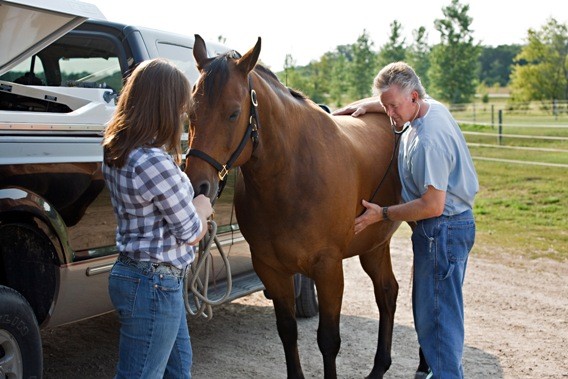
The influence of human-horse bond on stress and behaviour
The bond between humans and animals is believed to have a positive effect on well-being and performance. Hereby, an important benefit would be the better coping and increased exploration during threat. However, research is limited about human-horse bonds.
A developed bond is characterised by proximity seeking, secure base, safe haven and separation distress. A secure base refers to a reduction of stress when under threat and increased exploration in the presence of the handler. However, due to the fact that many human carers feel strongly towards their animal companions, the bonds may be incorrectly perceived. The aim of the study was to determine if presence of the owner confers a secure base, therefore improving behaviour and reducing the stress response during novel handling tests.
Forty-six horses completed two different handling tests, one with their owner and one with an unfamiliar person. Time taken to complete the test and proactive behaviour were measured and core temperature, discrepancy in eye temperature, heart rate and heart rate variability were recorded.
The results show that there was no difference in behaviour or physiological stress response between handlers. This indicates that a calm, competent, but unknow handler is equally effective to an owner during stressful procedures.
Expert opinion by Anouk van Breukelen
These findings have implications for veterinary and clinical applications, where unfamiliar handlers must modify behaviour under stressful circumstances. In further research a distinction could be made between horses trained based on postive reinforcement and negative reinforcement, to see if and how the training method affects the horse-bond in stressful situations.
> From: Ijichi et al., Applied Animal Behaviour Science 206 (2018) 59-63. All rights reserved to Elsevier B.V.. Click here for the online summary.


